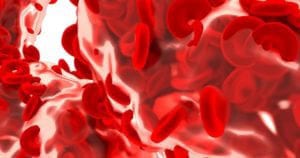Atypical Hemolytic-Uremic Syndrome (aHUS)
What is aHUS?
Atypical hemolytic-uremic syndrome is a kidney function disorder. It affects girls and boys equally. Women are affected more than men, with aHUS often being brought on by pregnancy. In the US, it affects about two per one million. It is ten times less common than the typical form of hemolytic uremic syndrome.What are the symptoms of atypical hemolytic-uremic syndrome?
Atypical hemolytic-uremic syndrome symptoms include:- Lethargy
- Fatigue
- Irritability
- Hemolytic anemia
- Thrombocytopenia
- Acute kidney failure
- Blood in the urine
- High blood pressure
What causes atypical hemolytic-uremic syndrome?
Atypical hemolytic-uremic syndrome is caused by genetic mutations. Being genetically predisposed plus an environmental trigger such as the flu or chicken pox can cause atypical hemolytic-uremic syndrome to come about.How is atypical hemolytic-uremic syndrome diagnosed?
Atypical hemolytic-uremic syndrome is diagnosed through clinical evaluation looking for:- Hemolytic anemia
- Low platelet count
- Kidney dysfunction
- Genetic/Family history
What are the treatments for atypical hemolytic-uremic syndrome?
Atypical hemolytic-uremic syndrome treatment includes:- Nutritional and electrolyte fluid balance
- Blood transfusions
- Platelet transfusions (not the first choice of treatment)
- Drugs that expand blood vessels
- Drugs that control blood pressure
- Kidney dialysis if needed
- Eculizumab
- Plasma therapy
Where can I find out more about atypical hemolytic-uremic syndrome?
Atypical Hemolytic Uremic Syndrome Articles

ICYMI: FDA Approves BKEMV, A Soliris Biosimilar, for aHUS and PNH
Jessica Lynn
June 26, 2024
Read More »



A Significant Number of People with aHUS Have Anxiety, PTSD
Jessica Lynn
November 27, 2023
Read More »


Study of the Week: One of Four Atypical Hemolytic Uremic Syndrome Patients Have PTSD
James Moore
May 1, 2023
Read More »





